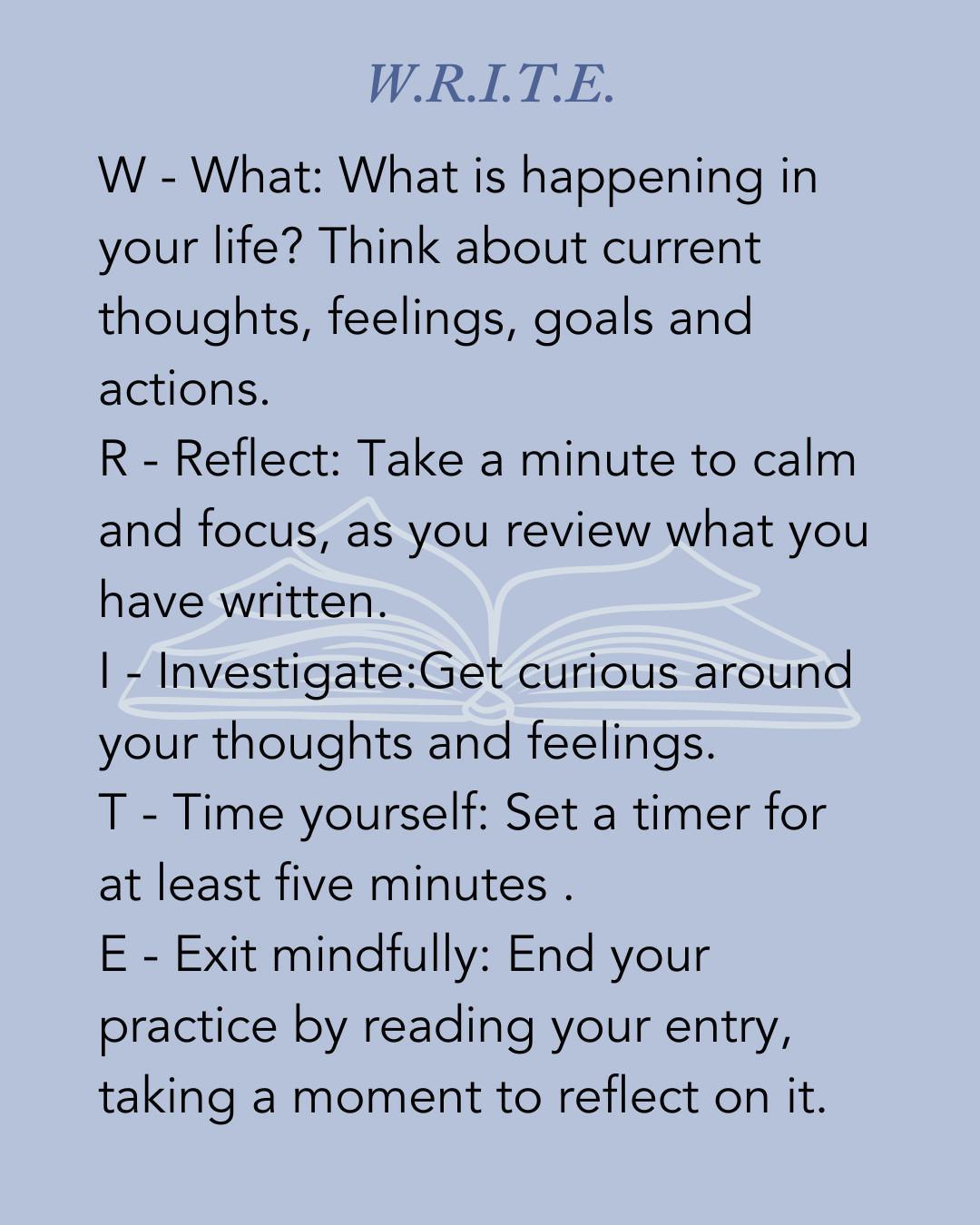Journaling is wonederful for many reasons - anyone can do it, it doesn’t cost a dime, and most importantly, it works. Effective journaling goes beyond simply writing words on a page; it's a practice that can help you achieve goals, clarify your thoughts, and improve your mental health.
Why is it so powerful?
Because it helps you to foster self-awareness. Self-awareness not only helps you understand how you’re feeling and how to honor what you need, but it also helps you to identify negative habits and behaviors, so you can stop them in their tracks.
There's no "right way," to journal, but these steps will help you make the most out of your five minutes.
Getting Started
1. Choose the Right Tools
Start with a journal that feels comfortable to write in, both in terms of size and texture. Create a private, distraction-free space for journaling, and establish a schedule that suits your routine. Some people prefer to start the day with a journal sesh to help align with their feelings and set their intentions, whereas others prefer to wrap up their day with a reflection of all that happened. Neither are right nor wrong, it just needs to feels right to you, so that you can practice consistently.
2. Consistency Matters
Speaking of consistency, it’s important to journal not just as a quick fix, but as a tool for regular self-reflection. Note not only challenging moments, but also what makes your good days great. This helps you hone in on positive patterns to cultivate, and negative ones to adddress. If you’re having a particularly stellar day, what did you do that day that you can do more of in your life? What did you let go of on that day that you want to let go of permanently?
3. WRITE
Now that you have your journal, your sacred spot, and a time of day picked out, it’s time to put pen to paper. Use this acronym to help you get started:
- W - What: What is happening in your life? Think about what is going on in your current thoughts, feelings, goals and actions.
- R - Reflect: Take a minute to calm and focus, as you review what you have written.
- I - Investigate: Get curious around your thoughts and feelings. Treat each entry like a detective solving a case, exploring questions like:
- “How am I feeling right now?"
- "How do I want to feel?"
- "What can I do to get to that feeling?"
- "What's holding me back?"
- "When was the last time I felt that way?"
- T - Time yourself: Set a timer for at least five minutes . If it helps you to stay accountable, write down your start and end times.
- E - Exit mindfully: End your practice by reading your entry, and take a moment to reflect on it. Use a sentence or two to sum up your insights. Be sure to use “I” statements. For example, “I am feeling uneasy about ____ and I will address it by doing ____.”
Experiment to Make it Your Own
Test out some of these tips above, take with you the ones that work for your practice, and leave the ones that don’t. The most important thing is to personalize this so it feels effective and sustainable!
Benefits of Journaling
Where to begin!? Journaling assists in our ability to put things into perspective and better control our lives. Effective journaling can result in numerous benefits that enhance wellness and quality of life, including:
- Improved working memory and communication
- Better sleep and mood
- Increased self-confidence and well-being
- Enhanced immune system and stress management
- Decreased intrusive thoughts and avoidance
- Identification of unhealthy patterns and acceptance of emotions
Fun Facts (and science...)
Research by Jason Moser, Associate Professor of Psychology, and researchers of Michigan State University used college students who were all highlighted to have a form of chronic anxiousness. The students were split into two groups and asked to complete a “flanker task” in an attempt to measure accuracy and speed. The first group wrote about their deepest thoughts and feelings about the upcoming test for eight minutes before beginning the task. The second group wrote about what they did the day before. Speed and accuracy was unremarkable. However, the expressive writing group showed more efficient results and used fewer brain resources. Brain activity was measured by using an electroencephalogram (EEG). The research concluded that expressive writing decreased worry and anxiety on the brain.
Journaling prompts to get your wheels turning
Still not sure where to start? Click here for a list of helpful journal prompts. If you think you don’t know the answer, pretend that you do and just write. You might be surprised what you find out about yourself.




